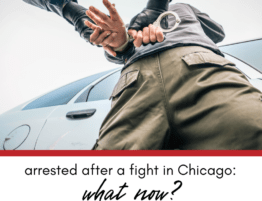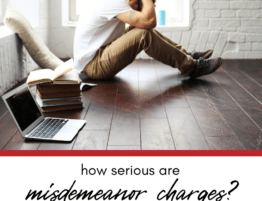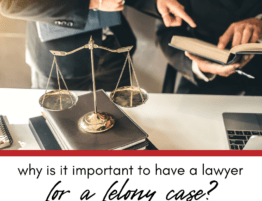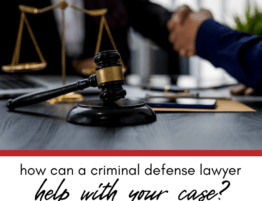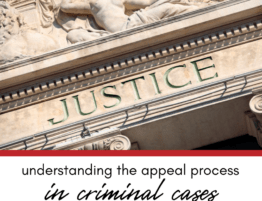
Being charged with a crime in Chicago, such as disturbing the peace, can be a nerve-wracking experience. But with a good understanding of the charges and the right legal support, you can navigate the situation more confidently. Our guide will provide you with essential insights and address some of the common questions you might have.
What You Need to Know About Disturbing the Peace in Chicago
In this guide, you’ll discover:
- What constitutes disturbing the peace
- Potential penalties and consequences
- How a defense can be built
- Ways to minimize repercussions
- The importance of understanding your rights
Here’s a closer look at each.
What Constitutes Disturbing the Peace?
In Chicago, the definition of “disturbing the peace” is quite comprehensive. This charge isn’t just about causing a ruckus. It encompasses a range of behaviors that, in essence, disturb the peaceful nature or the routine of a community.
- Public Fighting: Physical altercations in public areas can be deemed disturbances, especially if they draw a crowd or disrupt the regular activities of a location.
- Excessive Noise: Playing loud music late at night, shouting, or even honking persistently in a quiet area can all fall under this. Residential areas, in particular, have more stringent regulations about noise levels during nighttime hours.
- Public Commotion: This can include a range of activities, from public protests without the necessary permits to a spontaneous street party. Essentially, anything that disrupts traffic, the peace, or draws undue attention could be considered a commotion.
Potential Penalties and Consequences
Facing a charge of disturbing the peace in Chicago can come with varying consequences:
- Fines: Depending on the severity, you might be required to pay a fine, which can range from minor to substantial sums.
- Jail Time: More severe disturbances, especially those involving physical harm or repeated offenses, can result in incarceration. Duration can vary based on the act and prior records.
- Community Service: Some sentences may require you to give back to the community through designated service hours.
- Probation: Especially for first-time offenders, a period of probation might be imposed, during which any criminal offenses could lead to harsher punishments.
How Will Your Lawyer Defend You?
Your lawyer will work diligently to build a robust defense strategy tailored to your unique situation:
- Analyzing the Instigator: Was someone else the main instigator? If you were merely a bystander or were provoked into the situation, this can be crucial evidence.
- Intent vs. Accident: Was there a clear intent to disturb the peace, or was it an accidental occurrence? Perhaps your car alarm went off without your knowledge.
- Severity of the Disturbance: A lawyer can argue the reported disturbance was exaggerated. Maybe the noise was not as loud, or the altercation was not as disruptive as described.
Ways to Make Things Easier on Yourself
Navigating the legal system can be overwhelming, but certain steps can aid your journey:
- Early Consultation: As soon as you’re aware of the charges, get in touch with a lawyer. This allows you to get ahead of the situation and begin formulating a defense.
- Cooperate with Officials: Resisting arrest or being uncooperative can only complicate matters. Stay calm and follow directions while ensuring you’re not incriminating yourself.
- Document Everything: If possible, take notes of what happened, gather any evidence or contact witnesses who can vouch for your side of the story.
The Importance of Understanding Your Rights
Your rights serve as a protective shield during legal processes:
- Right to Silence: If you’re unsure about answering a question or fear your words may be used against you, remember you have the right to remain silent until you consult with your attorney.
- Right to Representation: From the moment of arrest or even during questioning, you can request to have an attorney present.
- Fair Trial: Everyone is entitled to a fair trial. This means you’ll have the opportunity to present your case, challenge evidence, and question witnesses in a court of law.
FAQ About Disturbing the Peace in Chicago
Check out these commonly asked questions about disturbing the peace in Chicago. If you don’t see the answers here, please call our office, and we’ll provide the information you need.
Is Disturbing the Peace Always a Criminal Offense?
Not always. Some disturbances may result in a civil infraction or fine rather than criminal charges, depending on the situation and local ordinances.
What’s the Difference Between Disturbing the Peace and Public Intoxication?
While both offenses involve public disturbances, public intoxication specifically relates to an individual’s disruptive behavior due to alcohol or drugs.
Can Noise Complaints Lead to Disturbing the Peace Charges?
Yes, excessive noise, especially during designated quiet hours, can be grounds for a disturbing the peace charge if it significantly disrupts the community.
Are There Defenses Against Disturbing the Peace Charges?
Absolutely. Potential defenses include freedom of speech, lack of intent to disturb, or the act being a response to a threat.
Can I Face Charges Even If No One Filed a Complaint?
Yes. Law enforcement can file charges based on their observations or if they believe a disturbance has occurred, even without a direct complaint.
Knowledge is empowering. By understanding the nuances of your charges and seeking appropriate legal assistance, you can approach your case with more confidence. Remember, every situation is unique, and while our guide provides general information, tailored advice from a criminal defense lawyer can be invaluable in navigating the complexities of your case.
Do You Need to Talk to an Attorney?
If you’ve been accused of a crime, we may be able to help you – and don’t worry: It’s completely confidential. Call us at 847-920-4540 or fill out the form below to schedule your free, private consultation with an experienced and skilled Chicago criminal defense attorney now.
Contact Us
"*" indicates required fields


